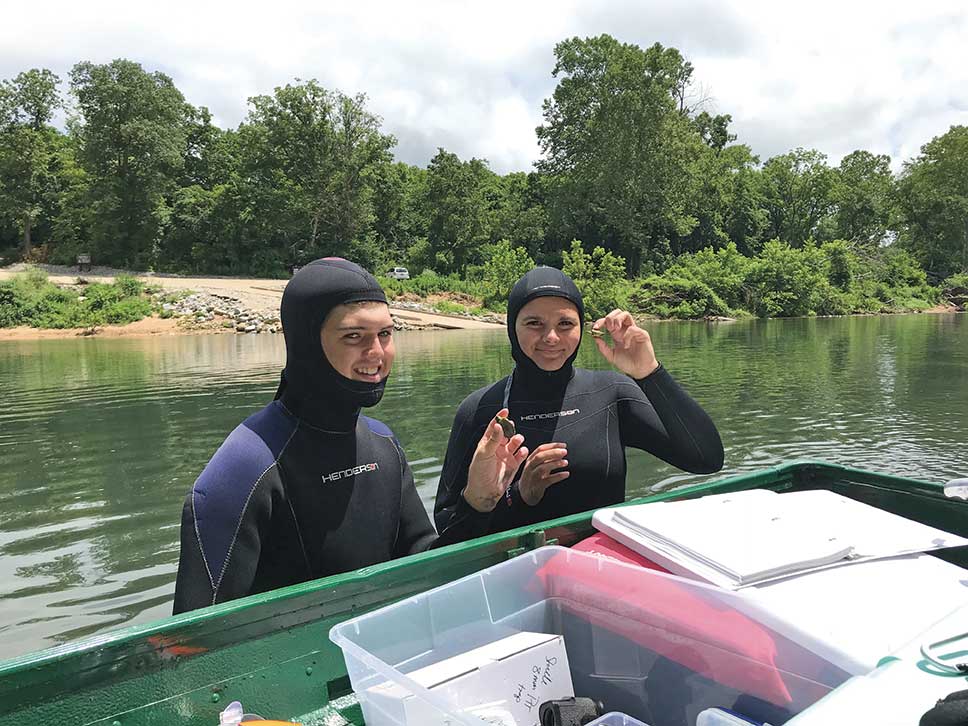Trinity Assistant Professor of Environmental Science and Biology Amber Pitt and two of her students recently published a scientific paper that sheds light on how different threats impact river turtle populations. Based on research they conducted in Ozark County, Missouri, in 2019, the paper can help to inform conservation strategies for river turtles.
Pitt said that turtles are one of the most highly threatened taxonomic groups in the world. The paper, published in the ecology journal Acta Oecologica and titled “Short-term impacts of a record-shattering flood and dam removal on a river turtle assemblage and population placed within the context of a 50 year study,” highlights research that is part of one of the longest-running turtle studies in the world.

Joining Pitt in her research were environmental science majors Myles Little ’21 and Ellie Tate ’21, a Dorothy A. and Glover Johnson Scholar and a Thomas Fisher Scholar. The three and their co-authors—Trinity Physics and Environmental Laboratory Manager Joseph Tavano and Max A. Nickerson from the University of Florida’s Florida Museum of Natural History—explored how turtles’ population and species composition change over time and in response to shifts in their habitat because of a 1,000-year flood.
Little, Tate, and Pitt worked together as a team. “We snorkeled the North Fork of White River, hand captured the turtles, and collected the data on the turtles and their habitats,” said Pitt. “We also co-authored a presentation which we presented at the prestigious International Congress for Conservation Biology in Kuala Lumpur, Malaysia, on July 23, 2019, as well as this publication.”

Pitt said they found that most of the turtle species were able to cope with the flood. “We also concluded that flooding was less of a threat to the turtle populations than exploitation,” she said. “This means that conservation efforts should focus more on addressing exploitation of turtles.”
She noted that conservation and sustainability are essential topics for her students and her to discuss in their work. “As members of the Trinity College community, we are actively participating in the broader, global conservation and sustainability discussion and process by doing critical research and outreach to ensure effective conservation programs,” said Pitt. “We are demonstrating by example how to be bold, independent thinkers who lead transformative lives and work toward the greater good.”
